I receive tons of questions from the Beauty Detox community about birth control. It’s an important issue, because the type of birth control you select can definitely affect your overall health and wellbeing. Let’s take a look at the many different methods of birth control for women and discuss how well they fit into the over all BDS lifestyle.
All birth control methods have their strong and weak points, and making a decision about birth control is a highly individual decision. Just because your best friend or your doctor introduces you to a particular method doesn’t mean that it is the one that works the best in your life. I strongly believe that before you make a decision about what method you choose, you have all of the facts so you can make the most informed choice possible for you.
Hormonal Methods
There are many hormonal methods of birth control. They all work in essentially the same way, although the hormones they contain and their method of delivery varies.
Hormonal methods work in one of two ways. Either they prevent ovulation or they interfere with implantation of fertilized eggs. All contain a combination of hormones, and they therefore come with inherent risks and side effects.
Oral Contraceptives (The Pill)

Pros:
- About 99 percent effective if taken exactly as prescribed
- Some studies indicate long-term use of oral contraceptives may lower the risk of endometrial cancer.
- Extended cycle pills may allow you to reduce your periods to about four a year.
Cons:
- Pills must be taken at the same time every day.
- Pills take a full cycle to be effective.
- Missing a pill increases your risk of getting pregnant.
- Pills contain combinations of estrogen and progestin that can affect many processes in your body.
- Long-term use of oral contraceptives increases the risk of developing breast, cervical, and liver cancers.
- Taking estrogen and progestin increases risks of developing blood clots in women who have recently given birth.
- Women at higher risk for developing blood clots when on birth control include smokers, obese women, and those over the age of 35.
- Birth control pills have a number of common side effects including breakthrough bleeding, decreased sex drive, mood swings, weight gain, and breast tenderness.
- From a beauty perspective, anything that interferes with hormones may also interfere with how your skin, hair, and nails appear.
- Taking synthetic hormones can interfere with your body’s ability to cleanse itself fully of toxic buildup.
- Birth control pills do not offer protection against sexually transmitted diseases.
- Certain medications, including antibiotics, can reduce the effectiveness of the pill.
Hormone Patches (Ortho Evra)
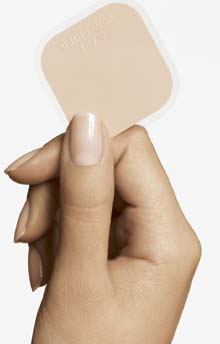
Pros:
- You only need to change your patch once every three weeks.
- You can predict when your period will be.
- Other pros are the same as birth control pills.
Cons:
- Have to remember to replace your patch.
- Other cons are the same as for oral contraceptives.
Hormone Injections (Depo Prevara)

Pros:
- Only need to have injections once every three months.
- Same as birth control pills.
Cons:
- You can only use the injections for two consecutive years.
- Causes a temporary loss of bone density.
- Long-term use is associated with the increased risk of osteoporosis and fracture.
- Same concerns as birth control pills.
Vaginal Ring
How it works: Also called NuvaRing, this ring device is inserted vaginally. It releases estradiol and etongesterol into the bloodstream continuously, blocking fertilization and thickening cervical mucus.
- The ring only needs to be changed once a month.
- Other benefits similar to the pill.
Cons:
- Does not protect against STDs.
- Vaginal discharge is a common side effect.
- Other drawbacks are similar to birth control pills and other hormonal methods.
Contraceptive Implants
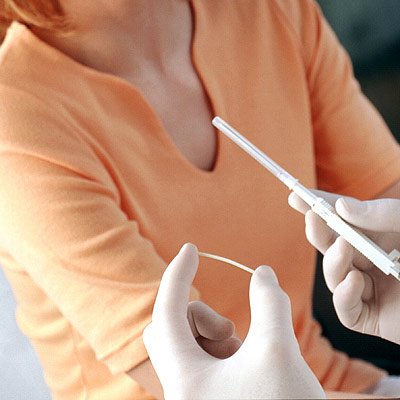
Pros:
- Don’t need to worry about birth control for three years.
- Implants are as effective as sterilization.
- Pregnancy protection starts as early as 24 hours after implantation.
- Other pros associated with all hormonal birth controls.
Cons:
- Requires surgical implantation under local anesthesia.
- If you want to stop before three years, you must have the implants surgically removed.
- Irregular bleeding is a possible side effect.
- Does not protect against STDs.
- Other side effects are the same as those associated with hormonal birth control methods.
Barrier Methods
Barrier methods protect you by stopping the sperm before it has a chance to travel near any eggs. The most common barrier methods are condoms, cervical caps and diaphragms, both which have an effectiveness of about 98 percent when used the right way. When paired with a spermicide, the rate of effectiveness increases.
Male Condoms
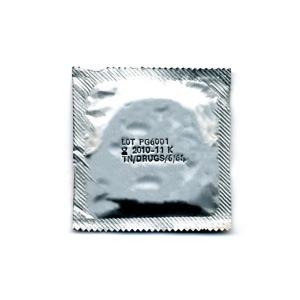
Pros:
- Is about 98 percent effective when used appropriately.
- Provides protection against sexually transmitted diseases.
- Uses no chemicals (unless lubricated).
- Easily available over the counter.
Cons:
- In order to be fully effective, should be used with a spermicide, which contains chemicals.
- Some people have latex allergies.
- User error decreases effectiveness.
- Many people feel condoms disrupt spontaneity or (perhaps) reduce pleasure
Cervical Cap
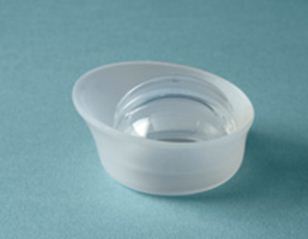
Pros:
- Allows the female to take control of birth control.
- Can be inserted a few hours prior to potential intercourse.
Cons:
- Has a failure rate of between 7 and 8 percent.
- Can be difficult to insert.
- Uses spermicide, which contains chemicals.
- Doesn’t protect against STDs.
Diaphragm
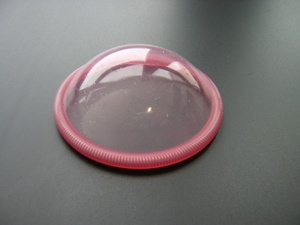
Pros:
- Can be inserted a few hours before intercourse.
- Allows the female to take control of birth control.
Cons:
- Has a high failure rate of about 16 percent.
- Can be difficult to insert and uncomfortable.
- Requires the use of chemical spermicides.
- Doesn’t protect against STDs.
Female Condom
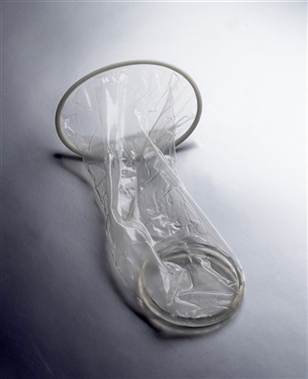
Pros:
- Allows female to take control of birth control.
- Doesn’t require spermicide.
Cons:
- Extremely high failure rate of approximately 21 percent (!)
- Can be difficult to use and hard to find.
Uterine Devices
Also known as IUDs, uterine devices irritate the lining of the uterus, creating a hostile environment for implantation. There are two main forms of IUD: copper IUDs and IUDs with protestogen.
Copper IUD
How it works: A physician implants the IUD vaginally, where it lodges in the lining of the uterus creating a hostile environment for implantation of a fertilized egg. Copper is also toxic to sperm, so it kills them.
- About 99 percent effective.
- Can remain in place 5 to 10 years.
- Can be removed when you’re ready to conceive.
- Doesn’t use chemicals.
- Can be used for emergency contraception.
Cons:
- Requires medical insertion, sometimes under local anesthesia.
- Can cause mild cramping.
- Requires checking after ever period to ensure it is in place.
- Can be spontaneously expelled.
- Risks include perforation and menstrual problems such as cramping and spotting.
- Does not protect against STDs.
Hormonal IUD
How it works: After being implanted vaginally, a hormonal IUD both affects sperm and keeps implantation from occurring.
- Over 99 percent effective.
- Can be inserted for up to 5 years.
- May reduce heavy menstrual bleeding.
- May reduce cramps.
- May prevent endometrial cancer.
- May relieve endometriosis.
- Reduces the risk of tubal pregnancy.
- Doesn’t cause weight gain.
Cons:
- Must be inserted medically, sometimes with local anesthesia.
- Increased risk of uterine perforation.
- Can be spontaneously expelled.
- Must be removed by a physician.
- Can cause ovarian cysts.
- If you do become pregnant, can cause preterm birth or miscarriage.
- Can cause infection.
- Can disrupt your body’s natural hormonal balance.
Natural Methods
There are several natural methods of birth control, as well. These may involve a little bit of work on your part, but you can learn when your body is at risk of becoming pregnant (usually within a few days either way of ovulation.)
Fertility Awareness

- Cervical Mucus Method: Hormonal changes around ovulation cause cervical mucus thickening. Immediately after your period, you may notice no cervical mucus for a few days. These are considered safe days. As ovulation approaches, the mucus thickens and becomes stretchy, wet, and slippery. These signal coming ovulation and are considered safe. During these days, you need to use a barrier method or some other form of birth control. After ovulation occurs, mucus returns to cloudy, and then tacky, and then dry. These are also considered safe days. To use the cervical mucus method effectively, you need to chart your mucus pattern. Using this method correctly results in about 3 pregnancies out of 100 users.
- Calendar Method: This method is about 91 percent effective. It requires that you track your period in order to determine when you are most likely to be fertile. Planned Parenthood has a great explanation of this method on their site.
- Temperature Method: This method is based on the fact that body temperature rises slightly after ovulation. It requires you to take your basal body temperature the first thing every morning before you even get out of bed, and then to chart it. Temperature changes will be very minor and should be taken using a basal thermometer. It’s best to work with a healthcare provider. Essentially, after you notice a consistent rise in temperature over that lasts for four days (usually in the last part of your cycle), you have entered the safe area for unprotected intercourse until you begin menstruation. The temperature method is more effective when combined with both the calendar and cervical mucus methods.
Birth Control: The Bottom Line
Birth control is an important health topic for women. In order to avoid unwanted pregnancy, you must take control by selecting the method of birth control that works with your priorities, your body, and fits your overall health goals. In choosing a birth control method, be sure to evaluate all of the pros and cons of every method to find the one that works for you.
Whenever I am pondering on something, I like to take a relaxing bath and think about some good desserts to make after my evening dinner. Before dinner, I may catch quick yoga session or meditation session. When I am most relaxed and at one with myself is when I find the answer I was looking for.

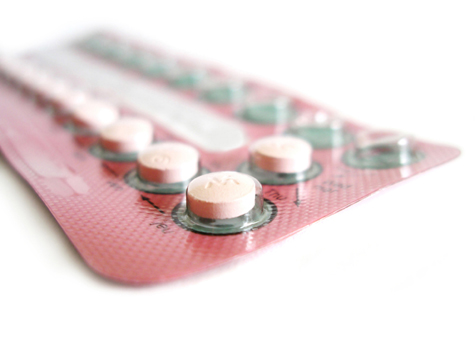
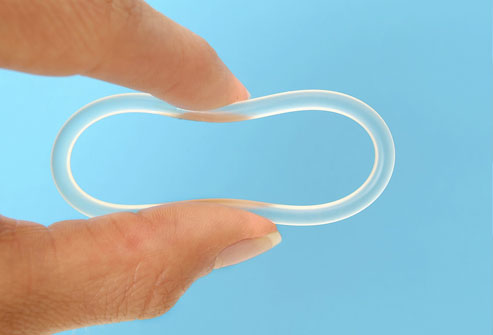
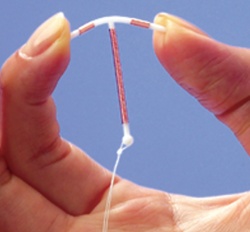
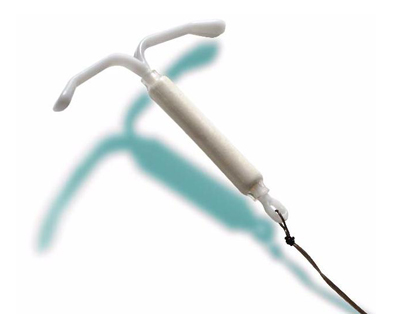

Hi Kimberly!
Guess what?? I took your advice and stopped counting calories, started making green smoothies, healthy fats, geneshas sweet potatoes, etc and my period came back!! I am so happy. I think my cycle must have stopped because it was missing vital nutrients… calorie counting is addictive and im glad i stopped when i did because osteoporosis is awful and not having a period can cause rapid bone density loss. I am so glad I took your advice. Thank you so much. I am no longer 100 lbs.. I am around 107 now and that makes me sad because I miss my skinnier self.. but I am healthier now and i would rather be a few lbs bigger then be a hunch back cripple when i am older… Thanks again :) xoxoxo!!!
Hi Kimberly,
Although you gave a great description of the pros and cons of each kind of birth control method, you didnt really give us any insight into how they fit in to the beauty detox solution plan save a sentence or two about one of the methods. I am a big fan of yours and LOVE all of the great advice you give even if sometimes it is not the easiest to integrate into a busy lifestyle. I always appreciate your candor, but this article lacks your opinion! Personally I have had lots of trouble with hormonal birth control methods, but I was wondering what YOU really thought was the best form of birth control is, to fit into the BDS. You are brave enough to tell us that shrimp is dirty and lots of beauty products are harmful, and to recommend alternatives, but I would like to know more of what your opinion is on what the best way to utilize a birth control method that is safe, effective and helps us ladies maintain our beauty detoxed lifestyle!
Are condoms full of crazy chemicals, what are the worst side effects from hormonal birth control pills! What do you REALLY think?
Your fans and followers want to know the truth!
Seriously! I was disappointed as well when I got to the end of the article! I was curious as to what Kim uses, and her opinions and experiences!
totally agree with VE – what do you really think
Thanks for the information. This is a good summary, which is easily available online. I had thought from the introduction, this blog would focus on how the individual methods would fit into “the overall BDS lifestyle” as stated above. Would love to hear that additional important piece of info! Thank you!
hey Kim i feel like you just wrote this for me! sort of.
i just got back from a gynecologist and they said I have Hypothalamic pituitary disorder. I’m only 17, yet I’ve lost my period. i’m really concerned. i eat the beauty detox way though! :)
Do you know or recommend any natural doctors for these things? if you recommend one for me i would be so appreciative because they want me on birth control pills for my bones; which i don’t want to take!! I also think i have hashimotos thyroid disease and the medical community is making it so hard to help me- they just say i have IBS and since the results of tests seem ‘normal’ they don’t question anything! PLEASE help.
Hello All ~
What happened to the method that has you charting your vaginal discharge so you
would know exactly when you are ovulating and not as its very detailed when you
are ovulating?
This is a totally healthy form of birth control as no matter what happens in your
month ( stress, joy etc. ) your discharge is always on target with where you’re at – – no guesswork here.
Does anyone know of this product?
Can you email me info: emilyteagarden@yahoo.com ~ Thank you!
Emily, that is one of the natural method listed above where you check your cervical mucus (discharge). Look into FAM or the book “Taking Charge of Your Fertility” (or something along those lines).
OHHH boy…… the choices and decisions! its such a stressfull thing because what you choose may turn things upside down, especially hormonally. ive done the pills for years and then stopped when we decided to have a family about 6 years ago. Recently, in january i started again (thinking it would help for acne in addition to your diet plan) and by the end of may i was done. I couldnt stand the mood changes, the return of yeast infections, and for the first time in my life i experienced weight gain with the pill while still doing the detox diet), which made me mad bc i lost all the weight i wanted with the detox diet, and now i have to work at loosing it again. so i am back to my calendar and monitoring my mucus (discharge). in addition i started with chronic yeast infections wile on bc pills, something i had removed from my life with your book. which i now i have to work at again. my acne cleared up after alot of work. your diet brought everything to the surface, and i mean everything. i had to go in antibiotics(i know, but i had to) for the acne bc i was infected like a staph infection. im great now just dealing with the post acne scars.
thank you for this post!
I definitely feel that my birth control (the pill) is the major cause of my acne. So many years ago i changed my diet/eating habits and had some improvement. However, it is ALWAYS a struggle- no matter my diet/exercise/probiotics/green smoothie….. I don’t go more than a couple of days with fairly clear skin….then I break out like crazy for weeks…have a few clear days then breakout again. It really seems hormonal. When I was taking a different form of birth control pill (actually several different ones) I broke out in cystic acne on my chin all the time. Recently I changed to another birth control pill (mainly due to breakthru bleeding, low libido, etc). I went from breaking out like crazy on my chin/mouth area to breaking out all along my temples, forehead and back! Anyways…still struggling.
Kimberly,
An incredible article – wish I knew this 20 years ago. My wife and I used a foam for many years. All of a sudden I had extreme kidney pains, once a week. Why? My body was trying to expunge the *non-oxynol 9* that was in the foam. This is a very toxic substance that can accumulate.
For 8 years now we have happily been on the rhythm method. I calculated the days my wife is most fertile, and add a few days either side. During those 10 days I “exit stage left.” The rest of the month I don’t have to worry.
Thanks for bringing this topic up.
Thanks for this important post. Any thoughts on the Lady-Comp? It’s supposedly 99.3% effective and natural as well.
My partner uses a copper IUD and it has been wonderful. She had heavy periods and cramping for 3 or 4 cycles, some fairly painful cycles, and then they leveled out. A small price to pay for 10 years of contraception and no extra chemicals or hormones.
Before I met her, I never knew there was an option besides condoms or pills with hormones. Just passing on some anecdotal info to support copper IUD.
Love what you do Kimberly, thank you!
I normally don’t post anything online, but I feel so strongly about this I have to post so that people are aware. This is one story, my story, and it may not apply to everyone, but I have to raise awareness because I suffered for 2 years thinking something was wrong with me…that I was forever going to be an embarrassed, gross female afraid to use public bathrooms, continue my yoga practice or wear a skirt to work… I even began thinking I was allergic to my husband’s semen..
I recently got the copper IUD (aka paragaurd) at the time I met my current husband. The copper IUD was the only thing on the market (with a high percentage of effectiveness) that did not contain synthetic hormones and I thought it was a wonderful concept…you didn’t have to worry about hormones, weight gain, swallowing anything at the same time every day, and yes, it could remain in you for 10 years!!! I researched this method for months, and the proposed side effects in the little pamphlet didn’t scare me – perforation, cramping, heavier periods…if it meant I could have great, carefree sex, who cares!! However, getting it in was difficult – I was not an ideal candidate, as the copper IUD is ideal for women who are done having children but not yet in menopause. They have to open/dilate your cervix to get the IUD into your uterus – for a woman who has not had her cervix dilated before with child birth, this can be complicated (as it was for me) and painful. For a few months I had heavier cramping than normal but I have always had heavy periods with cramping, so it wasn’t really anything I couldn’t deal with. As a couple, we loved the IUD…for 6 months or so….then came the recurrent bouts of BV (bacterial vaginosis) which I needed medicine for (don’t even get me started, I HATE taking drugs..) then the medicine caused yeast infections, so then I had to take medicine for that, and back and forth it went – I had BV or yeast infections for 2 years straight – I had BV on my wedding day for crying out loud! I went to the OBGYN ALL THE TIME!! I kept asking her if my IUD was causing this and all I got were wishy washy answers, so I left it in…my husband, God bless him, didn’t care, so our sex life was not compromised, though my self image and ego were severely suffering. Then one day I needed to go to the OBGYN (imagine that) and my regular doctor wasn’t there so I got a mid-wife and she opened my eyes…she knew many women suffering as I was from the copper IUD and of course, since side effects of BV and yeast infections aren’t listed on the packing, you think you begin to feel crazy! I got my IUD out that day and NEVER FELT BETTER, immediate pressure released from my uterus that I didn’t even know I had every day!! Ladies, your body does not want that in there – it if a foreign object in your uterus!!! Not only that, but do you actually know how the copper IUD is effective if it doesn’t contain hormones? It changes the pH of your vagina so sperm can’t survive! Hello? I knew better and have no one to blame but myself, but if you follow Kimberly, you know how important pH is!! Your body craves homeostasis and certain pH’s are in your stomach, vagina, and blood FOR A REASON – don’t change them, keep them happy and in balance! No wonder why I was so greatly affected! Some women may never experience this, but I did and if you choose this as your method of BC and you start experiencing any of side effects, get the IUD out immediately, don’t second guess yourself.
Now we practice natural family planning – tracking temperature and mucous. The iPhone’s have great apps “P Tracker Lite” (free version) for tracking your period and I find this a great way to mentally keep track.
Thanks for clarifying and laying out all the methods and their strengths and weaknesses, including the natural ones! You have clarified a lot of things. One question, though: is there a reason why you chose not to include herbal methods of birth control?
Thanks as always, Kimberly.
I saw in Megan Elizabeth’s video recently about the electronical device she uses for checking her temperature and determining if it’s safe to have intercourse or not. It looked really useful!
Very good article, thanks for explaining this.
It seems like you are going for a list of temporary birth control methods, not permanent, but I just have to say that I am a big fan of vasectomies ever since my husband got one. It is so relieving to know that we are done having kids. There is a female version of permanent sterilization, I think it is called Essure? I have heard that it is less invasive than tubal litigation.
I am very interested in the temporary male birth control I read about recently– vasectomies are permanent, but this new method is some kind of injection that blocks the sperm from getting through, but it is reversible (another injection dissolves it). Way less invasive than an IUD, which is the comparable female method. Unfortunately, not yet available in the US and may never be, because why risk messing up men’s bodies when we can just give unnecessary hormones to the women?
I started on the pills when I was very young because of pains and it has helped me a lot. However, I now know more about the effects of them, but find it hard to quit… It can change me and I have never been of them. It can maybe change how I feel for my partner, and I don1t want that. Can you maybe write a little bit more about what I can do, and if there are more cons of stopping taking the pills?
Ultimately, BC is an intimate choice for the female (and perhaps her significant other) that should be well researched and not taken lightly. As always, especially if you are suffering from any problems, discuss with your doctor.
I am not a doctor, but I participate largely in the natural world. My 2 cents on anything with hormones – BAD – your body naturally produces hormones and if you are deficient in one, as I found out I am, you want to meet with a naturopath and receive natural forms of hormones that correspond to the luteal and follicular phases of your cycle, not synthetically altered ones as in the Pill, O-ring, patch, IUD, injections, and implants (I can’t believe that it seriously something on the market!). If you are still eating meat, you should be finding organic sources as Kimberly expresses, for numerous reasons, but one is to avoid all the estrogen they feed to animals to plump them up! Did you know a young girl who started her period at 9, 10, or 11? I do, and the fact that 9 year olds can have babies is scary! Maybe that is correlated to the estrogens and the estrogenic compounds that leech into the environment and our bodies from meat sources, plastic (please don’t use plastic water bottles or heat your food in plastic containers!), and our drinking water….you do pee out the hormones from the your choice of BC. Anything that makes your period stop = STUPID!! Though we may hate our periods, we are more fortunate than men (and typically out live them) because we are graced with a monthly and FREE detox – your body is getting rid of the old cells, blood, and tissues! IUDs are NOT meant to be in your uterus, they are foreign objects – and the copper IUD changes the pH of your vagina, how is that good? That may cause a whole host of side effects like BV or yeast infections. Lastly, any chemical spermicides, etc. change the environment in your vagina which may irritate you causing yeast infections. Be free. Be natural. And LOVE the unique and PERFECT science our bodies are meant to do. Why interfere with something so divinely regulated? Start to learn your body’s cycles, tune in and listen, then plan accordingly!
love your response here, Lindz! so much truth and honesty!
I don’t think you are qualified to make such statements. Particularity with the Copper IUD comment you made, the Copper IUD does change the pH of your vagina, however that doesn’t cause yeast infections. If you are prone to yeast infections I’m sure your doctor wouldn’t recommend it because it may aggravate your condition. But if your’e healthy the only risks with the Copper IUD are obviously expulsion, perforation and then sometimes cramping or heavier periods for 3-6 months after insertion, and irritations if you are allergic to copper. I honestly think it’s the best form of birth control out there and would reccomend it to any women who meets the criteria for insertion.
Hi Kimberly! I’m currently reading your book the Beauty Detox Solution and I was wondering if there is any natural way to promote breast growth. A friend of mine told me she gainedan entire cup just eating edamame. But I know edamame contains soy and I’ve heard soy products can cause hormonal changes in the body. I’m really confused. And another question is concerning laser hair removal. Is it safe? I have hair all over my body. :( on my back on my stomach under my arm are gross and I even have thin hair, but nonetheless hair, on my chest. I think it is so unfeminine and I was wondering if there is any way of ridding myself of this gigantic burden. Besides the obvious procedures like waxing shaving.. I have dark hair and light skin so I think laser might work for me but I don’t want to damage my skin
wow…I have been following you and doing the GGS vitamix with all natural vegan diet, have rid myself of dairy (and my kids), but your review of the birth control pill does not state any opinions of yours, i.e., why would you put anything unnatural in your body… since you wouldn’t with food, why would you in other areas of your life?…It would have been nice if you would have expanded on the Natural methods of BC, and given more specific feedback on this matter…a link to Planned Parenthood is NOT the best choice for doing things naturally…They bank on unnatural, hormonal birth control failing and ladies ending up choosing abortions.
Charting both cervical mucus and body temperatures is worth it, to both refrain from becoming pregnant or to achieve it:) Natural Family Planning Methods are the way to go -after all, it is NATURAL and isnt that what we all want in the end? Listen to your bodies, chart your cycles, and take responsibility, the healthy way. Ecological breastfeeding will also help to space your babies, naturally. Check out this nifty app for tracking your fertility at
https://itunes.apple.com/us/app/nfp-charting/id300767738?mt=8
Aloha,
I just got the Mirena IUD 2 months ago. I have had serious side effects, among one of them was weight gain. 15 pounds in 3 weeks!!! Nothing has changed in my diet. In your blog, you said that weight gain was not an issue with the hormonal IUD. This is not true. Weight gain is a documented side effect and others should definately consider this and do further research on the pharmacutical companys’ websites.
Great video about Natural Birth Control
youtube.com/watch?v=0Tqz6aQ2Qz4
Is this particular diet/lifestyle ok for I’d you are trying to conceive or if you are pregnant?
I searched your blog on acne and birth control. Acne is my issue at hand as it’s been my issue for the past 8 years. I’ve come to realize that stress and cheese slip-ups are my worst enemies, along with the birth control pill. I’m wanting to get off of it but am terrified of the oily acneic mess that would occur. The only stress that is hard for me to handle is the stress of seeing pimples, oil and post redmarks all over my mug! Do you know of anything I could do to ease the hormone transition? I’ve been trying to look into this but all I keep finding are horror stories about ladies taking almost 8 months to regulate. A long time ago I read something on the No More Dirty Looks blog about someone taking fish oil, primrose oil, black current oil and something called Indole-3-Carbinol… I think she was doing alright with this routine. I’ve been on the pill for 8 years and hope to have children somewhere within the next decade so I think it’s time I finally face this. Plus I’m tired of having synthetic hormones swimming in my blood stream now that I’ve educated myself on health and well-being over the past 3 years. If you have any advice or could do a blog post on easing off the pill it would be so very much appreciated! Pretty please :) I think others would love to hear any knowledge you have on this subject as well.
I’ve been researching on natural birth control methods that are reliable and came across a fertility monitor made by a German company. The product is called Lady-Comp mostly used in Europe and is gaining popularity in North America. It’s a little pricey but looks like it’s worth it. If all you have to do is stick a thermometer into the mouth first thing after waking up-I will take it compared to the side effects of contraceptives on the market. Probably more reliable than a phone app and definitely worth researching before purchasing.
Thank you for posting this. Making sure people know the benefits and risks of different methods of birth control is extremely important. I just want to add one thing: Women who get migraines with a visual aura SHOULD NOT take oral contraceptives, as it greatly increases the risk of stroke.
Cheers!